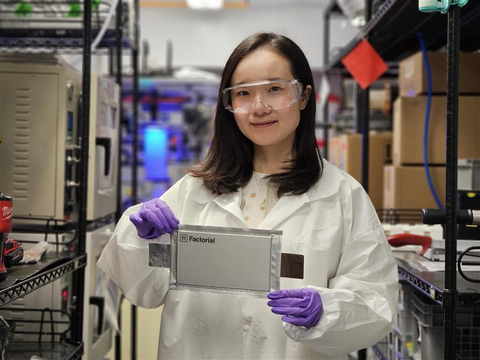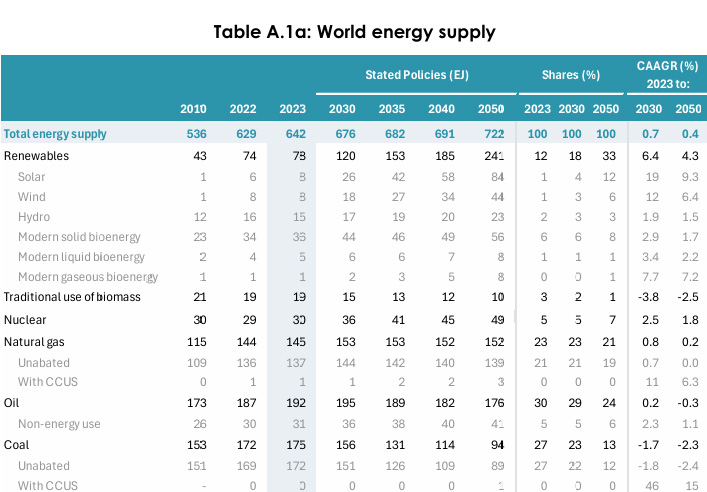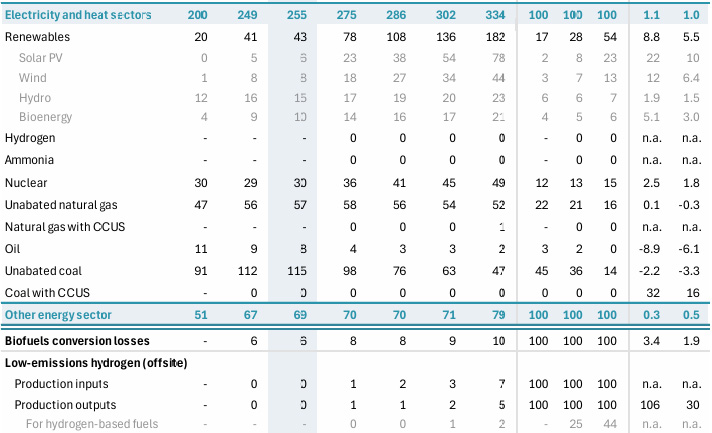Environment & Energy
Related: About this forumFactorial Unveils 40Ah All-Solid-State Battery Cells with Dry Coating Process
- Factorial’s first A-sample 40Ah Solstice™ cells showcase significant technical achievement in scaling up all-solid-state battery technology
- The cells are manufactured utilizing a novel dry cathode coating process that is more sustainable, energy-efficient, and cost-effective for battery manufacturing
- Solstice™ all-solid-state cells can boost energy density, up to 80%, progressing towards availability for electric mobility applications.

December 12, 2024 08:00 AM Eastern Standard Time
WOBURN, Mass.--(BUSINESS WIRE)--Factorial Inc. (Factorial), an industry leader in solid-state battery technology, announced today the company’s first Solstice™ all-solid-state battery cells have been scaled to achieve a 40Ah capacity. These automotive-relevant sized A-sample cells are manufactured with a novel dry cathode coating process and showcase the impressive energy density announced in September. This milestone demonstrates progress towards product availability for diverse electric mobility industries.
The 100% dry cathode is a novel battery manufacturing process that can eliminate all hazardous solvents in cathode coating. These solvents are not only carcinogenic but also require an energy intensive process to evaporate the chemicals in order to recycle them. In addition to dry coating, Solstice™ eliminates the need for the formation process due to its unique all-solid-state cell design. The coating and formation processes are typically the most energy intensive processes in lithium-ion battery manufacturing. Factorial’s use of the dry coating and all-solid-state chemistry innovations together lower operating costs, reduce energy consumption, and minimize battery production’s environmental impact.
“Breakthrough solid-state battery performance is only relevant if it can be scaled to a size that is viable for commercial use,” said Factorial Co-Founder and CEO Dr. Siyu Huang. “This achievement underscores our team’s technical leadership and unmatched expertise in bringing innovative battery technologies to the high standards of the automotive sector. At 40Ah capacity, our all-solid-state, Solstice™ cells demonstrate the technical maturity, process validation, and scalability required for commercial applications.”
Factorial developed the 40Ah Solstice™ cells at its advanced development center in Massachusetts utilizing custom equipment to establish an in-house dry cathode coating process. Results from lifecycle testing demonstrate that smaller prototypes have already reached over 2,000 cycles.
…
NNadir
(34,841 posts)...press releases.
Meanwhile, in something called "science," storing energy under any and all conditions wastes energy, and if the planet is overwhelmingly powered by dirty energy, which, as it happens, it is, the storage of energy makes things worse, not better.


IEA World Energy Outlook 2024
Table A.1a: World energy supply Page 296.
But who gives a fuck if the planet burns because of the popularity of storing energy and declaring it "green."
Let's have a party!!!!! Press release!!!!! Magic!!!! Money to be made!!!!!
The Disastrous 2024 CO2 Data Recorded at Mauna Loa: Yet Another Update 12/08/2024
Not to worry:
I'll bet that battery will just suck all the carbon dioxide right out of the air.
OKIsItJustMe
(21,016 posts)
International Energy Agency | Electricity 2024 | PAGE 160
(This table has been edited to focus in on two categories, Nuclear and Renewables, and to eliminate “projections” which you object to.)
NNadir
(34,841 posts)...their total indifference to fossil fuels, which rings true continuously, and disregards the relative amounts of money squandered of "renewable energy" in contrast to that invested in nuclear.
I note that "renewable energy" also includes some very dubious enterprises, the destruction of major river systems and the combustion of biomass, burning strip mined forests in power plants.
The questions being avoided with this garbage response is "do batteries waste energy?" and "is the status quo, involving the success of people who couldn't care less about fossil fuels but hate nuclear energy, resulting in the collapse of the atmosphere?"
Let's put it this way: Hydrogen and battery bullshit has been handed out here and elsewhere for more than 2 decades.
Is it resulting in reductions of fossil fuel use, or the increase in rates of release of fossil fuel waste?
I'm interested in fossil fuel elimination, not attacking the most viable tool for doing so.
Got it?
No?
I didn't think so.
OKIsItJustMe
(21,016 posts)World Energy Outlook Special Report
Overview
About this report
Batteries are an important part of the global energy system today and are poised to play a critical role in secure clean energy transitions. In the transport sector, they are the essential component in the millions of electric vehicles sold each year. In the power sector, battery storage is the fastest growing clean energy technology on the market. The versatile nature of batteries means they can serve utility-scale projects, behind-the-meter storage for households and businesses and provide access to electricity in decentralised solutions like mini-grids and solar home systems. Moreover, falling costs for batteries are fast improving the competitiveness of electric vehicles and storage applications in the power sector.
The IEA's Special Report on Batteries and Secure Energy Transitions highlights the key role batteries will play in fulfilling the recent 2030 commitments made by nearly 200 countries at COP28 to put the global energy system on the path to net zero emissions. These include tripling global renewable energy capacity, doubling the pace of energy efficiency improvements and transitioning away from fossil fuels.
This special report brings together the latest data and information on batteries from around the world, including recent market developments and technological advances. It also offers insights and analysis on leading markets and key barriers to growth. By looking at the entire battery ecosystem, from critical minerals and manufacturing to use and recycling, it identifies synergies and potential bottlenecks across different sectors. The report also highlights areas that call for greater attention from policy makers and industry.
…